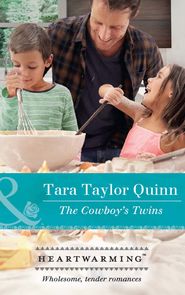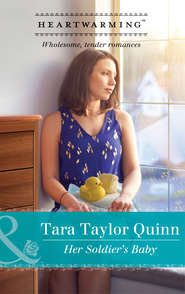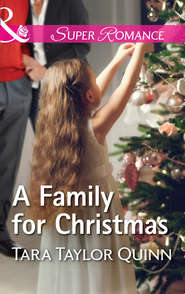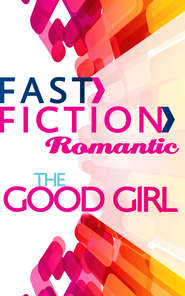По всем вопросам обращайтесь на: info@litportal.ru
(©) 2003-2024.
✖
The Night We Met
Автор
Год написания книги
2018
Настройки чтения
Размер шрифта
Высота строк
Поля
As if that said it all.
“Do you see her often?”
“After our father left, she drank herself into liver disease and died ten years ago.”
“So she didn’t know about Keith.”
“If the alcohol hadn’t killed her, his death would have.” Nate’s voice was far calmer than mine would have been. “She drank a lot, but only after the two of us were in bed. Or out. She was a great mom, always there for us whenever she could be. She had no family support, which is why I think she fell into trouble with my father to begin with. Yet she raised two boys who knew they were loved, who never did drugs or got in trouble with the law. And she did it all on her own.”
“In his sermon this morning, Father John talked about God’s work in our society today,” I said, returning without explanation to his earlier question. “He mentioned Jacques Cousteau’s first undersea special on TV this past week. And the space-probe landing on the moon. Man’s potential is limitless. But without God’s help none of that could have happened.”
“You say that as if you aren’t sure you agree with him.”
“I don’t disagree,” I said. “Not at all.” Father John was a highly revered priest. I was a lowly postulant-to-be. “But I do think human choice and human will also contribute to scientific achievement. To any kind of achievement. What’s the point of having a mind, of making choices, if we don’t have the power to follow through on them?”
His nod encouraged me to continue. “Take your mother, for instance. She made choices. They didn’t all work. But she took what she had and made good things happen.”
“You’re pretty smart for such a young woman.” Nate’s words were teasing, mocking my earlier comments about him. And yet, they held a note of admiration.
“You sound as though you’re ancient,” I teased him.
“Compared to you, I am.”
I slid my hands into the sleeves of my sweater. “How old are you?”
“Thirty-three.”
Fourteen years older than me. Which was safer than I’d thought.
“Say something.”
“I’m surprised you even find me interesting.” That didn’t come out the way I’d meant it. I wasn’t fishing for compliments.
“You’ve got a sense of peace about you,” he said, pausing. “A kind of acceptance.”
I certainly didn’t see myself that way. But he had nothing to gain by turning my head. Our futures were clearly determined, and they’d be far from each other, with absolutely no point of connection.
“You aren’t shallow.” He started to walk again.
“Neither are you,” I said, catching up with him.
“You have something I want,” Nate said as we approached the entrance to the park and the moment I’d be saying goodbye to him forever.
I stopped breathing. And then my racing pulse forced air into my lungs.
I felt like running. But some impulse held me there, wouldn’t let me go. “What?”
“A calm and knowing heart.”
I almost wept. “Oh, Nate, if you could feel it right now, you wouldn’t say that.”
“You aren’t afraid to face life, to confront your doubts and still head off full force.”
“I’m scared to death!”
“On the surface, sure, but deep down?”
I glanced up only long enough to see the earnest question in his eyes. And without conscious thought, I entered my inner world, the mental space I flowed into when I meditated, looking for the sense of assurance that had always guided me. A world I trusted.
“Deep down I am content,” I whispered, filled with gratitude at the fact he’d just pointed out to me. I hadn’t consciously realized that my questions and confusions were only on the surface, and that inside, where it counted, I was calm. Peering up at him, I didn’t care that tears fell from my eyes. I understood now what this weekend had been all about. God worked in mysterious ways. Sent messengers in a myriad of guises.
And at that moment I knew without question that Nate Grady was one of those messengers.
Chapter 3
I spent the rest of that day with Nate. I was a free woman—didn’t have to be anywhere. The other soon-to-be postulants who were used to me hanging around the dormitory, studying or joining them in a game of croquet would be curious, but they wouldn’t be disrespectful. Nate called and got a later flight back to Boulder. And we went to a little café not far from St. Catherine’s and talked for hours. He saw so much more than most people did when they looked at daily life.
“Where’d you learn to play the piano?” I asked as dusk was starting to fall.
“Taught myself, mostly.” We were drinking hot chocolate. “My grandparents bought a piano and I’d sit down and pick out songs. I didn’t learn to read music until I was in high school.”
“You’d just hear songs and sit down and play them?”
“Eventually.” I loved Nate’s grin.
“If you heard a song right now for the first time, could you play it?”
“Probably.”
I wondered about that morning’s sermon—wondered where man’s talents were strictly his own and where God was responsible for them.
“I enjoy skiing,” Nate said. “And I love working with the kids all summer. But playing the piano…completes me.”
I understood what he meant by that. “I’m not sure I know what completes me.”
“Giving your life to the service of God?”
“Can it be that broad?” I frowned. “Shouldn’t there be some talent that’s more personally my own?”
“I don’t know.” His gaze was steady. Sincere. “What I can tell you, what I’ve learned, is that the more rules you place on whatever you’re looking for, the less likely you are to find it.”
He’d given me something else to think about.
“Like if someone spent his whole life searching for some grand purpose, he’d miss the fact that he was a great gardener and that his flowers brought comfort to hundreds of people.”
“Or the proverbial janitor whose smile touched hundreds of kids over the years…”
His words faded and we smiled at each other. An easy, comfortable communication between like spirits. I was glad I’d met him.











